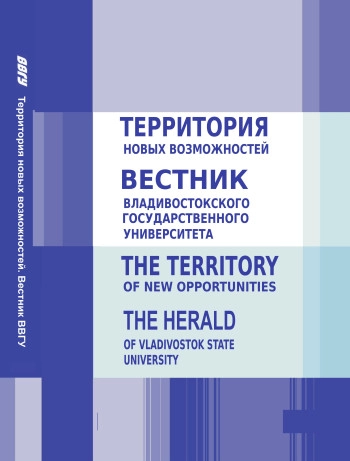The article is devoted to the resource of students' independent work, which self-reveals their abilities with new technologies in vocational education. A prospective analysis of the formation of approaches to independent work in the educational process is carried out. The pedagogical function as an intermediary is presented in the context of organizing independent work as a transition to multidimensionality and creativity. The student's independent work, especially in vocational education, creates new psychological spaces for self-restoration, self-disclosure of human abilities. The formation of post-non-classical methods of student's independent work in vocational education in the context of work with artificial intelligence is discussed.
independent work, self-study, vocational education, systemic ontopedagogy, artifi- cial intelligence, interactive technologies, self-development of student's abilities.
1. Pidkasisty P.I. Independent cognitive activity of schoolchildren in training. Experimental research. Moscow: Pedagogy; 1980. 240 p.
2. Granitskaya A.C. Teach Thinking and Acting: An Adaptive Learning System in School. Moscow: Enlightenment; 1991. 172 p.
3. Isaev E.I., Slobodchikov V.I. Psychology of human education. Formation of subjectivity in educational processes / Law. Sv.-Tikhon humanite. un-t. Moscow: Publishing House of PSTGU; 2014. 431 p. ISBN 978-5-7429-0942-2
4. Halperin P.Ya. Experience in the study of the formation of mental actions. Bulletin of Moscow University. Series 14: Psychology. 2017; (4): 3–20.
5. Khutorskoy A.V. Eidos pedagogy. Education as self-realization. Moscow: Eidos; 2023. 67 p.
6. Verbitsky A.A. Theory and technology of contextual education: textbook. Moscow: Moscow State Pedagogical University; 2017. 266 p.
7. Dewey D. Psychology and pedagogy of thinking / per: N.M. Nikolskaya. Moscow: Yurayt; 2025. 166 p.
8. Luria A.R., Tsvetkova L.S. Neuropsychology and learning problems in a comprehensive school. Moscow; 1997. 63 p.
9. Klochko V.E. Systemic ontopedagogy: psychological and psychophysiological justification. Bulletin of the Novosibirsk state. ped. University. 2014; 4 (6): 52–63.
10. Chernyavskaya V.S. Self-disclosure of abilities as an internal dialogue: cognitive, metacognitive and existential human resources: monograph / Vladivostok state. university of economics and service. Vladivostok: Publishing House of VSUES; 2021. P. 9–18.
11. Chernyavskaya V.S., Shibaev V.S. Self-disclosure of abilities as the goal of modern education: a review of psychological and pedagogical research. Scientific and methodological electronic journal "Concept". 2018; (12): 57–68.
12. Kormilitsyna T.V., Pautkina O.I., Shestakov V.S. Features of the organization of independent work and control of students' knowledge in computer science using digital tools of inverted learning. Modern science-intensive technologies. 2023; (4): 166–170.
13. Avramenko A.P., Bulanova E.R. Prospects for the development of independent work of students in the context of the integration of artificial intelligence technologies in foreign language education. Rema.Rhema. 2024; (1): 79–91. DOI:https://doi.org/10.31862/2500-2953-2024-1-79-91
14. Tupikova S.E., Bykova N.O. The possibilities of artificial intelligence in organizing independent work of students of foreign languages faculties. Organization of independent work of students in foreign languages. 2023; (6): 214–221.
15. Azizova I.Yu. Formation of students' ideas about the modern picture of the world based on the organization of independent work in the training of biology: monograph. St. Petersburg; 2020. 130 p.
16. Aliyeva A.B. Psychological and pedagogical approaches to organizing independent work of students in the higher education system. Pedagogical Journal. 2016; 6 (6A): 254–267.
17. Alshanova B.Kh. Pedagogical leadership and organization of independent work. Modern Higher School: an innovative aspect. 2012; (4): 104–107.
18. Batyrshina A.R. Technology of organizing independent work of students (from the experience of studying a course in the history of psychology). Higher education today. 2008; (9): 82–84.
19. Bashilova E.I. Independent work of students and its role in the process of teaching a foreign language. Pedagogical Journal. 2024; 14 (3): 168–173.
20. Belevtseva A.N. Psychological approach in organizing students to perform independent work. Current issues of modern education. 2015; (7): 34–36.
21. Dmitruk N.G. Creative independent work as a condition for self-realization of the student: autoref. dis. ... cand. ped. Sciences: 13.00.01 / Novgorod. state. un-t named after Yaroslav the Wise. Veliky Novgorod; 2004. 21 p.
22. Ilyasova M.Kh., Boltukaev I.I., Gazieva Y.Z. The essence of independent work and its importance in the formation of students' research skills. Pedagogical Journal. 2022; 12 (6-1): 209–217.
23. Elkonin B.D. Mediation and development. Cultural and historical psychology. 2016; 12 (3): 103–112.





